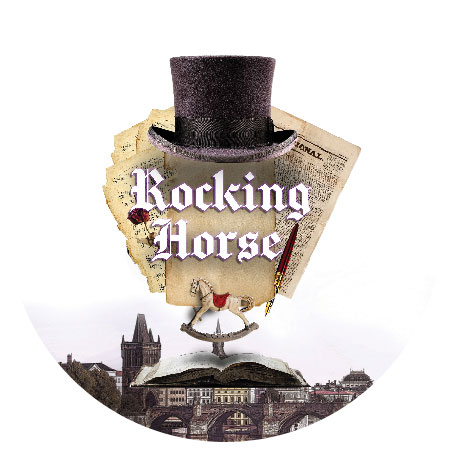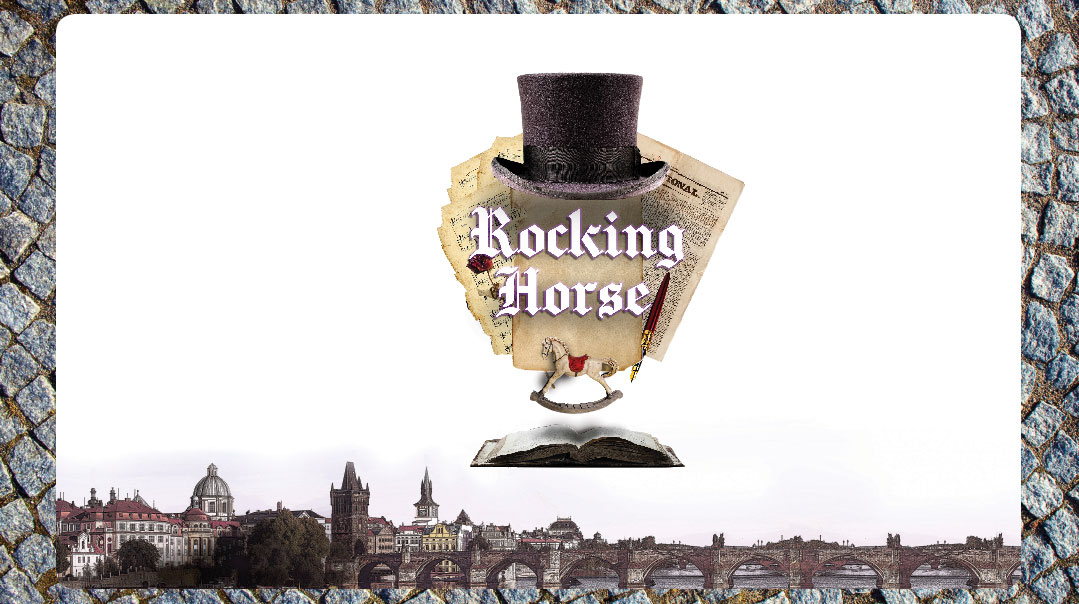Rocking Horse: Chapter 2


She has not been outside the walls of the sanatorium — she prefers not to call it a hospital —
for four months
It has rained all night, the rain of October in Vienna — starting as a drizzle, and then becoming louder, as if the drops are narrating a tragic opera.
But when Hannah and Ernst climb into the carriage on Sunday morning, the newborn sun shines off of the cobblestones, turning black into gold. The leather seats in the carriage are cracked, and Hannah can not keep her fingers away from the tear, up and down, worrying it like a child.
At the train station, Ernst ushers Hannah into the gentlemen’s waiting room while he purchases their tickets. Hannah stares through the glass windows at the vast, black-painted shining carriages, gold letters on the side.
The platform is filled with people. Another train is leaving soon, to Budapest, and Hannah notices the women’s dresses: narrow sleeves, large bows and ruffles on the back of the women’s skirts. Her own gown is green, stiff, with tiny buttons down the front to mimic a jacket. Her skirt is empty of embellishment. Prague is not fashionable. It’s one of the things she likes about the city she now calls home. Though those skirts, perhaps just for Shabbos, would be a delight.
The Budapest train leaves, and soon enough, another great beast pulls into the station with a cloud of gray smoke and a hoot that makes her jump, ever so slightly, from her seat and clutch the leather handle of her umbrella.
The train doors open. There is scraping luggage and shouted farewells, handkerchiefs waved out of windows, fathers in top hats and tails kiss ringleted children goodbye. A large bronze statue looks down; a man on a horse.
“Come, come, my dear. We must not tarry,” Ernst says, but the noise and the tumult arrest her.
She has not been outside the walls of the sanatorium — she prefers not to call it a hospital — for four months. She cannot remember anything of the journey to the place, only a sudden contrast between color and sound and soothing white and quiet.
She feels Ernst shepherding her up onto the train, into a carriage. She blinks, and he guides her into the window seat. Outside, farewells. A whistle. A sudden jolt, a clatter, and they are moving.
Ernst removes his top hat and jacket, and then produces a white wicker basket, covered with a square of linen. He rubs his hands like a little child.
“Viennese pastries,” he announces.
A uniformed man with a cap makes his way down the central aisle, inviting them into the dining car for töltött káposzta and kolbász. But Ernst is already chewing on a flaky cheese pastry and he simply waves the man away, though the thought of stuffed cabbage makes Hannah’s mouth water.
“Nothing like this at home,” he says, forgetting, just for a moment, to delicately dab his mouth with a napkin.
He leans over to her and looks out the window, and raises his hands in a salute.
“Vienna, where fine living is not so much an art, but a science. A serious endeavor.”
“Indeed. The rolls in the…”
Sanatorium. Should she say the word, or dress it in euphemism?
Oops! We could not locate your form.








